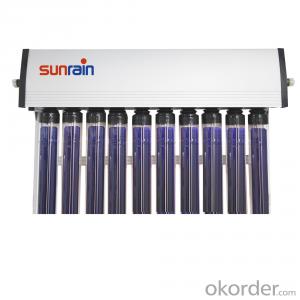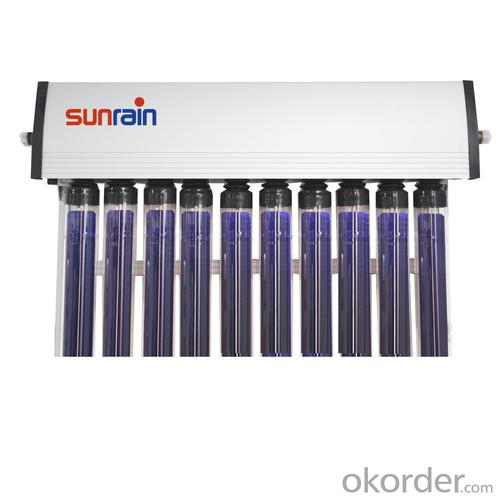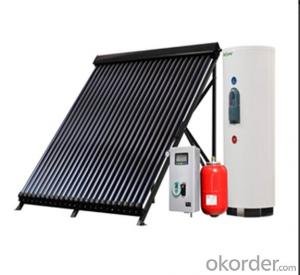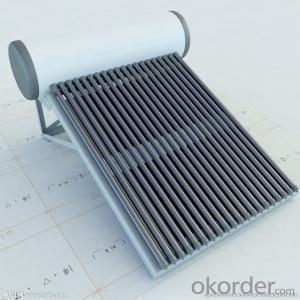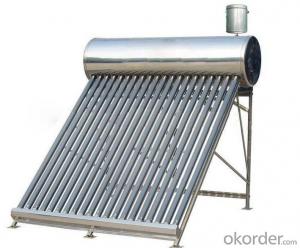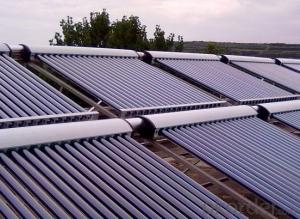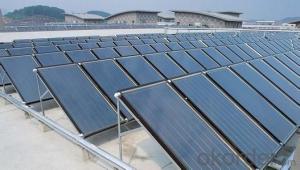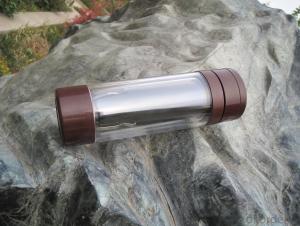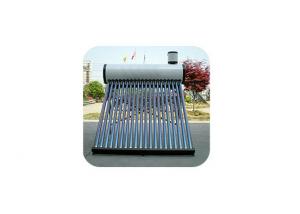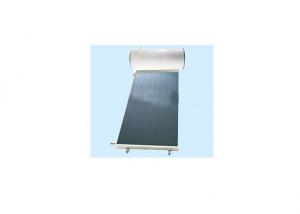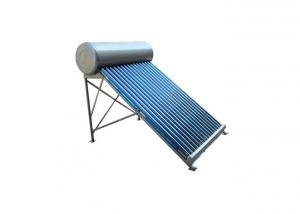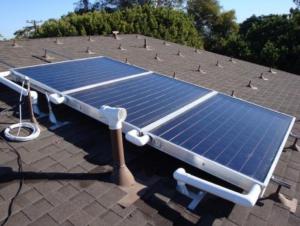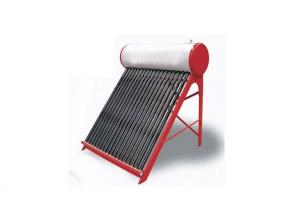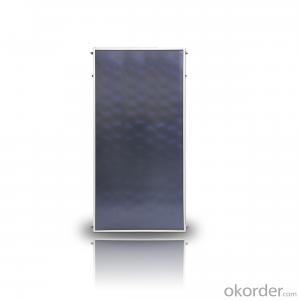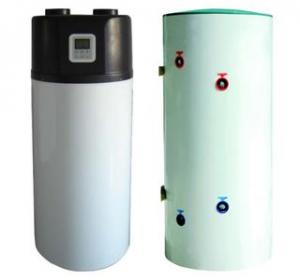Supreme Solar Sanitary Hot Water Heater
- Loading Port:
- China Main Port
- Payment Terms:
- TT OR LC
- Min Order Qty:
- -
- Supply Capability:
- -
OKorder Service Pledge
OKorder Financial Service
You Might Also Like
R134a gas, environmentally friendly.
Water output temperature: 38ºC~70ºC.
No contamination potential, the condenser coil is wrapped around outside the tank. Multi protection:
PTR valve, double high water temperature protection switches (Manual and Automatic).
Auto mode selection & Vocation mode.
Automatic weekly disinfect function.
Four-way valve for automatic defrosting.
Close refrigerant circuit, easy for plumber installation.
User-friendly LCD display for easy interaction.
15 Pa air outlet pressure enables a duct length up to 5 meters.
- Q: What are the maintenance requirements for a solar water heater?
- The maintenance requirements for a solar water heater typically involve checking and cleaning the solar collectors, ensuring proper fluid levels and pressure, inspecting and cleaning the storage tank, and monitoring the system for any leaks or malfunctions. Additionally, it is important to regularly inspect and clean the heat exchanger, replace any faulty parts or components, and perform an annual check-up to ensure the system is functioning optimally.
- Q: Can a solar water heater be installed on an existing home?
- Yes, a solar water heater can be installed on an existing home. In fact, retrofitting an existing home with a solar water heater is a common practice to reduce energy consumption and lower utility bills. The installation process typically involves mounting solar panels on the roof or in a sunny area of the property to capture the sun's energy, and connecting them to a storage tank or existing water heating system. While the feasibility of installation may depend on factors such as available roof space, orientation, and local building codes, professional installers can assess the suitability of a solar water heater for an existing home and provide customized solutions.
- Q: What are the different types of solar water heaters available?
- There are mainly two types of solar water heaters available: active solar water heaters and passive solar water heaters. Active solar water heaters use pumps or other mechanical devices to circulate water, while passive solar water heaters rely on natural convection to circulate water. Both types can further be categorized into direct and indirect systems, based on how the water is heated.
- Q: How much water can a solar water heater heat per day?
- The daily heating capacity of a solar water heater is influenced by several factors, including the system's size and efficiency, weather conditions, and patterns of water usage. Typically, a properly designed solar water heater can heat a range of 40 to 80 gallons (150 to 300 liters) of water per day. However, this estimate is not set in stone and can differ greatly from one system to another. To determine the precise capacity of a solar water heater, it is crucial to take into account the local climate conditions, the angle and orientation of the solar collectors, and the specific needs of the household or building.
- Q: How do solar water heaters perform during cloudy or rainy days?
- Solar water heaters typically have lower performance during cloudy or rainy days compared to sunny days. This is because the amount of sunlight available for conversion into heat is significantly reduced. However, modern solar water heaters are designed with advanced technology and efficient insulation systems to still generate some heat even under cloudy or rainy conditions. While the water may not reach its maximum temperature, solar water heaters can still provide a certain level of heating during such weather conditions.
- Q: Can a solar water heater be used in areas with high levels of water contamination from chemicals?
- Yes, a solar water heater can be used in areas with high levels of water contamination from chemicals. However, it is important to note that the solar water heater alone may not remove or neutralize the chemicals present in the water. It is advisable to incorporate additional water treatment methods, such as activated carbon filters or reverse osmosis systems, to ensure safe and clean water for use.
- Q: Can a solar water heater be used in areas with limited access to reliable suppliers or distributors of solar equipment?
- Yes, a solar water heater can be used in areas with limited access to reliable suppliers or distributors of solar equipment. Solar water heaters are relatively simple and can be constructed using locally available materials. Additionally, maintenance and repairs can often be done locally, making them a suitable option for areas with limited resources or infrastructure.
- Q: Are there any limitations on the size of a solar water heater?
- Yes, there are limitations on the size of a solar water heater. The size of a solar water heater is limited by the available space for installation, the amount of sunlight received in the location, and the capacity of the system to heat and store water. Additionally, larger solar water heaters may require more complex and expensive installation and maintenance.
- Q: Are there any government incentives or tax credits available for installing a solar water heater?
- Yes, there are government incentives and tax credits available for installing a solar water heater. These incentives vary by country and region, but many governments offer financial support to encourage the adoption of renewable energy technologies. It is recommended to check with local authorities or visit official government websites to determine the specific incentives and tax credits available in your area.
- Q: Can a solar water heater be used in areas with strict building aesthetics requirements?
- Yes, a solar water heater can be used in areas with strict building aesthetics requirements. Solar water heaters come in various designs that can be integrated into the building's architecture, such as concealed or flat-plate collectors, to comply with aesthetic guidelines. Additionally, some solar water heaters offer customization options, allowing them to blend seamlessly with the building's design while still harnessing solar energy for water heating.
Send your message to us
Supreme Solar Sanitary Hot Water Heater
- Loading Port:
- China Main Port
- Payment Terms:
- TT OR LC
- Min Order Qty:
- -
- Supply Capability:
- -
OKorder Service Pledge
OKorder Financial Service
Similar products
Hot products
Hot Searches
Related keywords
